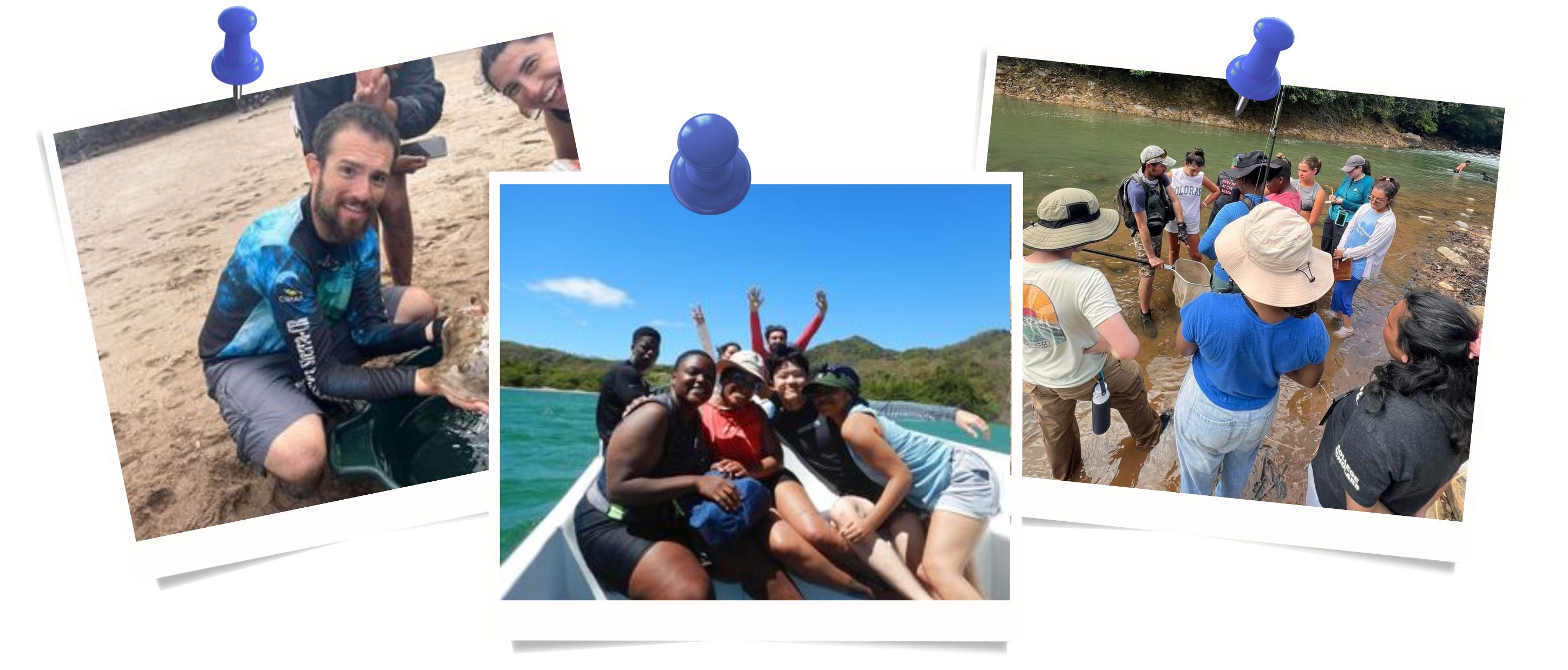Winter Program | San Jose, Costa Rica - VERITAS
Dates: January 7 - 23, 2026 | *Credits: 6
Costa Rica, one of the most biodiverse regions in the world, is the ideal setting for immersive study in marine biology. With more than 20 national parks, 8 biological reserves, and a network of protected marine and coastal areas, the country offers an unparalleled natural classroom.
Costa Rica has also maintained over 50 years of peace since abolishing its military in 1948. The country’s emphasis on education, sustainability, and conservation has created a stable and welcoming environment for international students.
Marine Biology Program
Hosted by Universidad VERITAS in San José—an accredited Costa Rican institution—this intensive Marine Biology Winter Program introduces students to the unique ecological richness of tropical marine environments.
The course focuses on the core principles of:
-
Tropical oceanography
-
Marine ecology
-
Marine biology
Students will investigate:
-
Interactions between marine species
-
Relationships between species and their environment
-
The structure and function of interconnected ecosystems
The program also examines human environmental impact, and emphasizes the management, utility, and conservation of marine ecosystems.
This is a hands-on, field-oriented course that combines academic study with direct observation and experience in Costa Rica’s marine habitats.
To begin the process, you can stop by our office or email us to request the application form and receive more details about the program.
Before you go check the helpful links below:
![]() Center for Disease Control- Check for any travel notices.
Center for Disease Control- Check for any travel notices. ![]() U.S. Department of State International Travel- Learn more about your destination.
U.S. Department of State International Travel- Learn more about your destination.
Costs
Application Fee: $300
*CCNY Tuition: 6 Credits ($305 or higher per credit)
*Program Costs: $1,800
Airfare: $800 (Estimated)
Important Dates (mandatory meetings):
- Deadline for all Application Materials: Wednesday, October 1st, 2025
- Interview with Study Abroad: Tentatively scheduled for October 20- 22, 2025
- Pre-Departure Orientation: Tentatively scheduled for December 5th, 2025, at 12noon
- Deadline for payment of Program costs and CUNY - Tuition: November 21st, 2025
Program cost includes Housing; meals; Medical Insurance; On-site emergency Support; On-site airport pick-up; Welcome orientation in San Jose, Costa Rica to introduce students to local culture and surroundings; Excursions, and cultural activities.
*Study Abroad credits will be posted 8 to 12 weeks after completing the program, as long as all financial obligations are met both at CCNY and at the partner institution abroad.
Connect with us!
Last Updated: 02/25/2026 13:45




